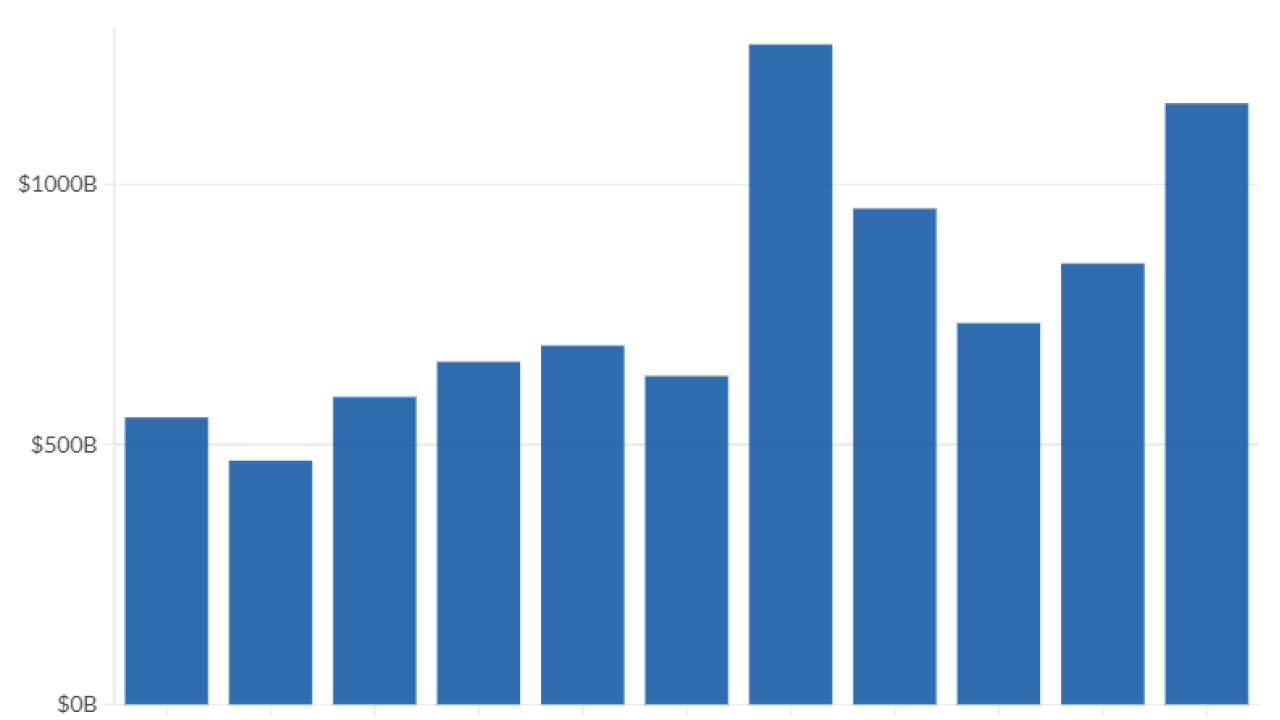Individual investors are buying exchange-traded funds at a fast pace, even though many don’t fully understand them, according to a survey from Charles Schwab.
Forty-four percent of respondents said they plan to invest in ETFs in the next year, while 80% of those who already own ETFs say they will invest more in the products over the next two years.
The appetite for ETFs and the need for education about them “throws us a challenge as an industry,” says Beth Flynn, vice president of the ETF platform management at Schwab.
Survey respondents named cost as the top factor in their choosing to use ETFs. And among costs, investors said they are more concerned with expense ratio than with trade commission: 59% said expense ratio is “extremely important,” while 51% said described commissions the same way.
But while investors know about some of ETFs’ benefits, many don’t fully understand how ETFs work. A quarter of respondents said they don’t understand ETFs’ costs or how to best use them. Just 8% of current ETF owners described themselves as experts. And of investors who don’t own an ETF but are considering buying one, just 2% consider themselves experts.
Schwab’s online survey, which encompassed more than 1,000 individual investors with at least $25,000 in investable assets and familiarity with ETFs, found that the products comprise, on average, 20% of investors’ portfolios, and many use them for asset allocation purposes.
Half of ETF owners said they use the products for exposure to specific sectors or markets, while 44% reported using them to invest in core allocation strategies.
The most common kind of ETF considered for purchase are sector ETFs, followed closely by equity and international ETFs, the survey found. Meanwhile, 34% of respondents reported interest in commodity ETFs, and 26% said they are considering fixed income funds for their next ETF purchase.
Is increased ETF usage among individual investors coming at the expense of mutual funds or other investments? No, says Flynn. “We found that (survey respondents investing in ETFs) they held a higher percentage of mutual funds, stocks and bonds than clients who are not investing in ETFs,” she says. ETF use appears to be coming at the expense of the cash portion of investors’ portfolios, she says.
What additional education do individual investors want about ETFs? First and foremost, is how to winnow down their choices, the survey found. Meanwhile, investors considering ETFs said their top challenge is figuring out how to buy and sell them.
Also on the education wish list for those considering buying ETFs is more knowledge about how to use the products and more understanding of their costs.
ETF owners, meanwhile, want to know more about choosing asset classes to access through ETFs.





